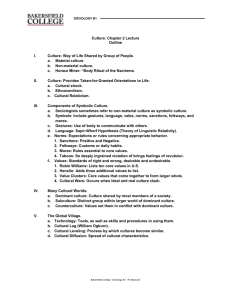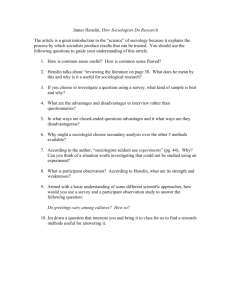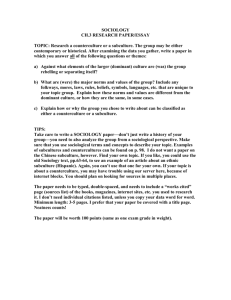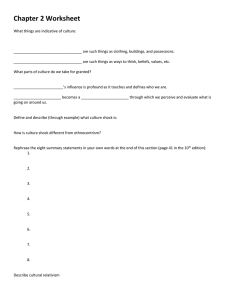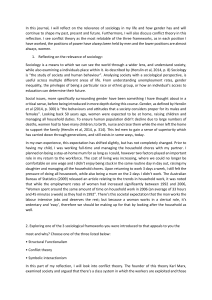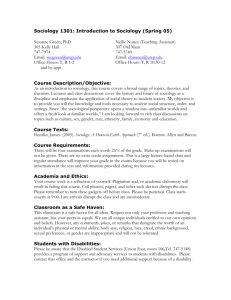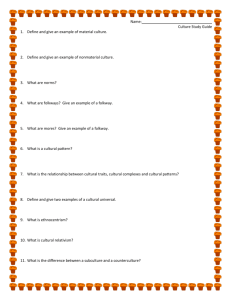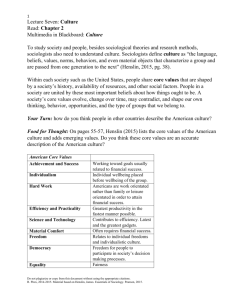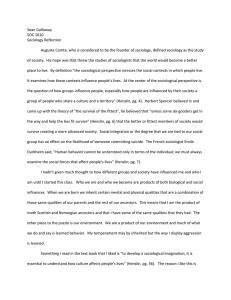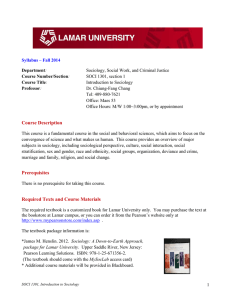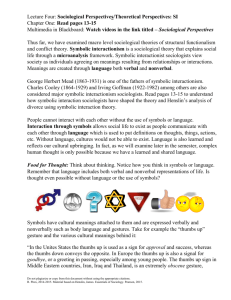Reading Guide Chap. 2 Culture
advertisement
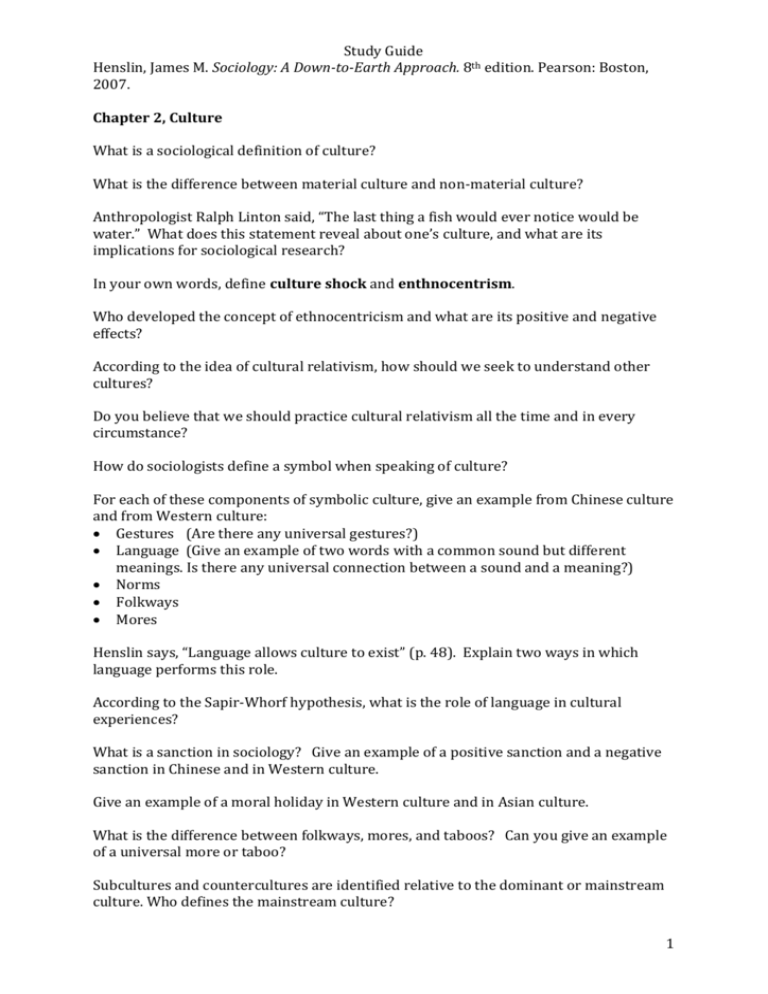
Study Guide Henslin, James M. Sociology: A Down-to-Earth Approach. 8th edition. Pearson: Boston, 2007. Chapter 2, Culture What is a sociological definition of culture? What is the difference between material culture and non-material culture? Anthropologist Ralph Linton said, “The last thing a fish would ever notice would be water.” What does this statement reveal about one’s culture, and what are its implications for sociological research? In your own words, define culture shock and enthnocentrism. Who developed the concept of ethnocentricism and what are its positive and negative effects? According to the idea of cultural relativism, how should we seek to understand other cultures? Do you believe that we should practice cultural relativism all the time and in every circumstance? How do sociologists define a symbol when speaking of culture? For each of these components of symbolic culture, give an example from Chinese culture and from Western culture: Gestures (Are there any universal gestures?) Language (Give an example of two words with a common sound but different meanings. Is there any universal connection between a sound and a meaning?) Norms Folkways Mores Henslin says, “Language allows culture to exist” (p. 48). Explain two ways in which language performs this role. According to the Sapir-Whorf hypothesis, what is the role of language in cultural experiences? What is a sanction in sociology? Give an example of a positive sanction and a negative sanction in Chinese and in Western culture. Give an example of a moral holiday in Western culture and in Asian culture. What is the difference between folkways, mores, and taboos? Can you give an example of a universal more or taboo? Subcultures and countercultures are identified relative to the dominant or mainstream culture. Who defines the mainstream culture? 1 Study Guide Henslin, James M. Sociology: A Down-to-Earth Approach. 8th edition. Pearson: Boston, 2007. What is the difference between a subculture and a counterculture? Name one subculture or counterculture that you belong to. What is a pluralistic society? Which society do you believe is more pluralistic; American (or Canadian) society, or Chinese society? Why? Name three core values associated with American culture, and three core values associated with Chinese culture. What is the role of values in shaping society, changing society, and molding our opinions of ourselves and others? What is the difference between the ideal and the real culture? In your own words, contrast the viewpoint on human behavior of social biologists and sociologists. In your opinion, which viewpoint does the lack of cultural universals seem to support? What is the relationship between technology, in the broad sense, and a culture’s material culture? Explain Henslin’s statement that “technology sets the framework for a group’s nonmaterial culture.” According to William Ogburn, who coined the term “cultural lag,” what part of a group’s culture usually changes first while the other lags behind? Give an example of this phenomenon from Western or Eastern culture. What are cultural diffusion and cultural leveling? What modern development has led to their rapid growth? 2
